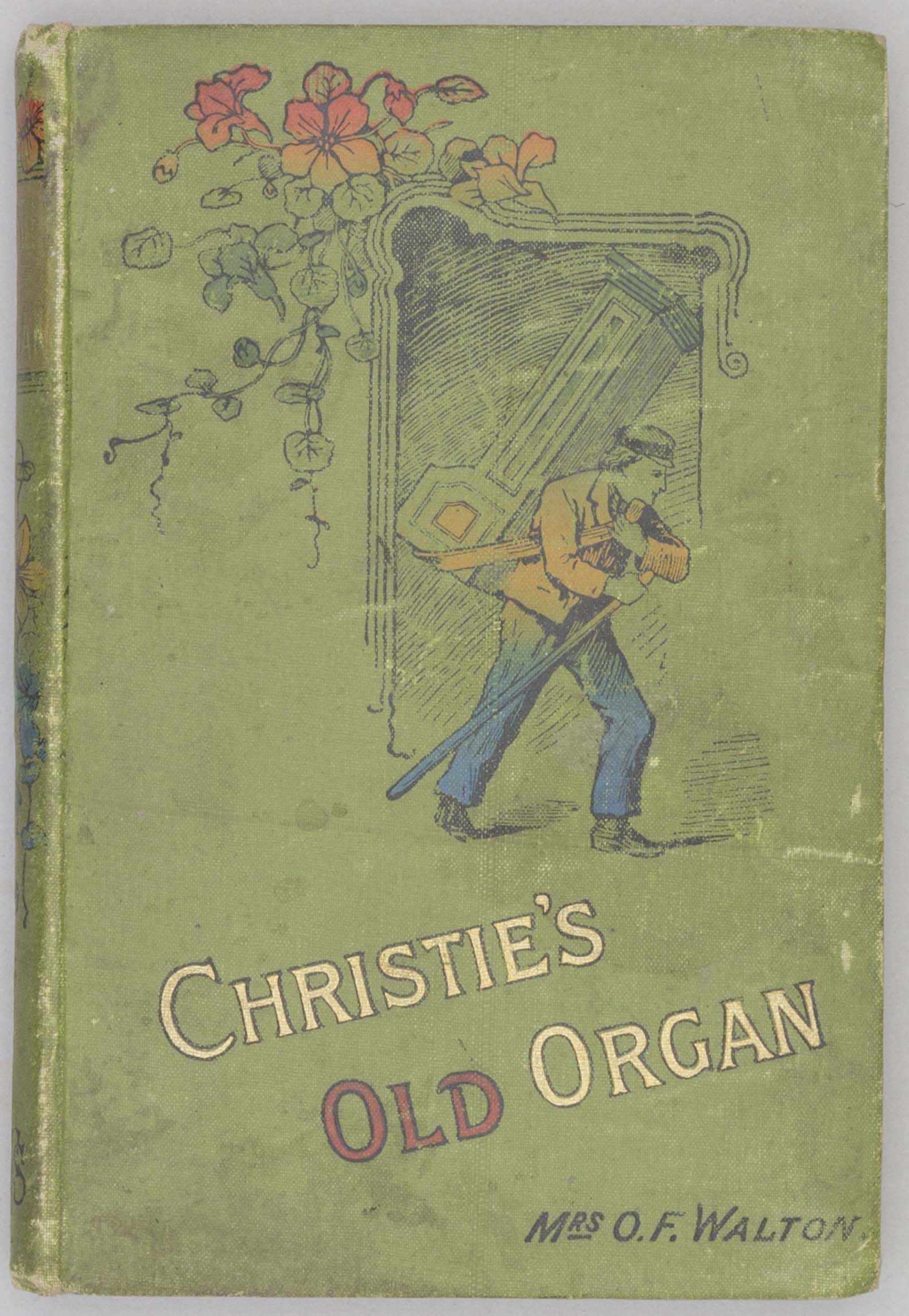
London: Religious Tract Society, [1883]
[Prize] Walton
According to mediaeval belief, after death the soul tarried in Purgatory for a long time, rendered all the longer if one’s surviving friends and relatives did not purchase masses and indulgences to shorten it. Protestants returned to a biblical foundation of the believing Christian going directly to heaven after death, and the Elizabethan period saw several handbooks on godly dying. This theology had a long influence on children’s books, going back to the nonconformist preacher James Janeway’s A Token for Children (1672) and prominent with the flowering of children’s books in the Victorian era. Christie’s Old Organ (1874) is not only the best-known work by Amy Catherine Walton but was one of the most popular British evangelical stories of its time, even being translated into Japanese. In it, the ragged orphan Christie befriends the barrel-organist Treffy, whose favourite tune is ‘Home, Sweet Home’. When Treffy is ill, ignorant of religion, and fearful of death, Christie attends chapel services. He and Treffy become Christians together; and Treffy dies knowing that the blood of Christ has cleansed him from all sin (Treffy’s favourite text) and that he is ‘at home at last, in Home, sweet home’.